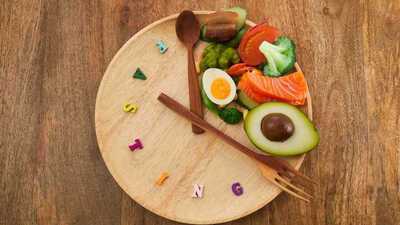Breakfast sets the tone for your day, but not all breakfasts are equal. Many everyday habits can rapidly spike insulin and crash your energy before mid-morning. From sugary cereals to skipping meals entirely, certain choices hurt more than help. These eight common mistakes may trigger unwanted spikes in blood sugar and insulin levels. Swap them out with balanced routines that stabilise glucose, curb cravings, and support long-term metabolic health. Keep reading to discover which breakfast habits could be sabotaging your well‑being and how to fix them.
Breakfast habits that spike insulin levels
Starting with fruit juice or sweetened drinks
Pouring fruit juice or flavoured tea may feel healthy, but even natural sugars are absorbed too quickly without fibre. This causes a rapid insulin release followed by energy dips. Instead, opt for whole fruit or unsweetened beverages to avoid abrupt glucose surges.
Eating refined carbs like white bread or pastries

Bagels, toast with jam, croissants, and doughnuts contain high-quality carbs with minimal fibre or protein, leading to fast digestion and sharp insulin spikes . Whole grains and balanced pairings are a smarter way to begin the day without blood sugar rollercoasters.
Choosing instant oats and cereals with added flavour
Flavoured instant oats and sugary cereal may seem convenient, but they lack fibre and are loaded with hidden sugars. These processed breakfast options often lead to quick digestion and insulin surges. Better to pick plain oats with protein-rich toppings instead.
Skipping breakfast altogether

Surprisingly, skipping breakfast leads to insulin spikes later in the day. When you wait too long to eat, your body releases stored glucose, followed by a heavier insulin response once you finally eat. Eating regularly helps balance blood glucose levels and prevents overeating later.
Consuming overly sweet smoothies or bowls without fibre
Smoothies can be deceptively high in sugar, even with fruit juices or flavoured yoghurts. Without protein, healthy fats or fibre, this liquid sugar causes an immediate spike. Always blend fruit with protein (like Greek yoghurt or nuts) and fibre to slow absorption.
Drinking coffee or tea with added sugar before eating

Starting your morning with sweetened coffee or tea on an empty stomach elevates insulin rapidly. These liquid sugars absorb faster than solid food and create hunger cycles. Consider unsweetened tea or coffee or pair with a balanced breakfast to reduce spikes.
Relying on high‑lactose dairy or sweetened yoghurts
Some flavoured yoghurts and dairy drinks contain added sugar or high lactose content. These can elevate blood sugar even without visible sweetness. Choose unsweetened plain yoghurt or plant-based alternatives paired with protein and fibre to maintain stable glucose.
Ignoring meal sequencing - eating carbs first

Eating breakfast starting with carbs (like toast or cereal) means fast digestion and rapid glucose entry. Experts recommend consuming vegetables or protein first, then carbohydrates. This food order slows sugar absorption, reduces insulin demand, and helps control morning blood sugar.
When it comes to stabilising insulin and energy, it’s not just what you eat but how you start your morning. Avoid sugary drinks, refined carbs, and unbalanced meals. Choose whole foods paired with protein, fibre, and healthy fats and consider meal sequencing for added control. These small adjustments at breakfast can help prevent blood sugar spikes, steady insulin response, and support lasting vitality.
Also read| 7 ancient indian fermented foods that heal your gut naturally
Breakfast habits that spike insulin levels
Starting with fruit juice or sweetened drinks
Pouring fruit juice or flavoured tea may feel healthy, but even natural sugars are absorbed too quickly without fibre. This causes a rapid insulin release followed by energy dips. Instead, opt for whole fruit or unsweetened beverages to avoid abrupt glucose surges.
Eating refined carbs like white bread or pastries

Bagels, toast with jam, croissants, and doughnuts contain high-quality carbs with minimal fibre or protein, leading to fast digestion and sharp insulin spikes . Whole grains and balanced pairings are a smarter way to begin the day without blood sugar rollercoasters.
Choosing instant oats and cereals with added flavour
Flavoured instant oats and sugary cereal may seem convenient, but they lack fibre and are loaded with hidden sugars. These processed breakfast options often lead to quick digestion and insulin surges. Better to pick plain oats with protein-rich toppings instead.
Skipping breakfast altogether
Surprisingly, skipping breakfast leads to insulin spikes later in the day. When you wait too long to eat, your body releases stored glucose, followed by a heavier insulin response once you finally eat. Eating regularly helps balance blood glucose levels and prevents overeating later.
Consuming overly sweet smoothies or bowls without fibre
Smoothies can be deceptively high in sugar, even with fruit juices or flavoured yoghurts. Without protein, healthy fats or fibre, this liquid sugar causes an immediate spike. Always blend fruit with protein (like Greek yoghurt or nuts) and fibre to slow absorption.
Drinking coffee or tea with added sugar before eating
Starting your morning with sweetened coffee or tea on an empty stomach elevates insulin rapidly. These liquid sugars absorb faster than solid food and create hunger cycles. Consider unsweetened tea or coffee or pair with a balanced breakfast to reduce spikes.
Relying on high‑lactose dairy or sweetened yoghurts
Some flavoured yoghurts and dairy drinks contain added sugar or high lactose content. These can elevate blood sugar even without visible sweetness. Choose unsweetened plain yoghurt or plant-based alternatives paired with protein and fibre to maintain stable glucose.
Ignoring meal sequencing - eating carbs first
Eating breakfast starting with carbs (like toast or cereal) means fast digestion and rapid glucose entry. Experts recommend consuming vegetables or protein first, then carbohydrates. This food order slows sugar absorption, reduces insulin demand, and helps control morning blood sugar.
When it comes to stabilising insulin and energy, it’s not just what you eat but how you start your morning. Avoid sugary drinks, refined carbs, and unbalanced meals. Choose whole foods paired with protein, fibre, and healthy fats and consider meal sequencing for added control. These small adjustments at breakfast can help prevent blood sugar spikes, steady insulin response, and support lasting vitality.
Also read| 7 ancient indian fermented foods that heal your gut naturally
You may also like

Actor Adil Hussain Speaks at EPFO's 20th RGDE Event

Gyokeres wonder goal, absent players, embarrassed Saka - Four things spotted in Arsenal training

Ruth Carr fan lands amazing £96,000 bet on day to remember for Yorkshire trainer

Smoking cigarettes not only causes cancer, but it also causes many types of diseases, all of which are fatal.

India Champions Decline WCL Semifinal Clash With Pakistan, Cite Longstanding Opposition





